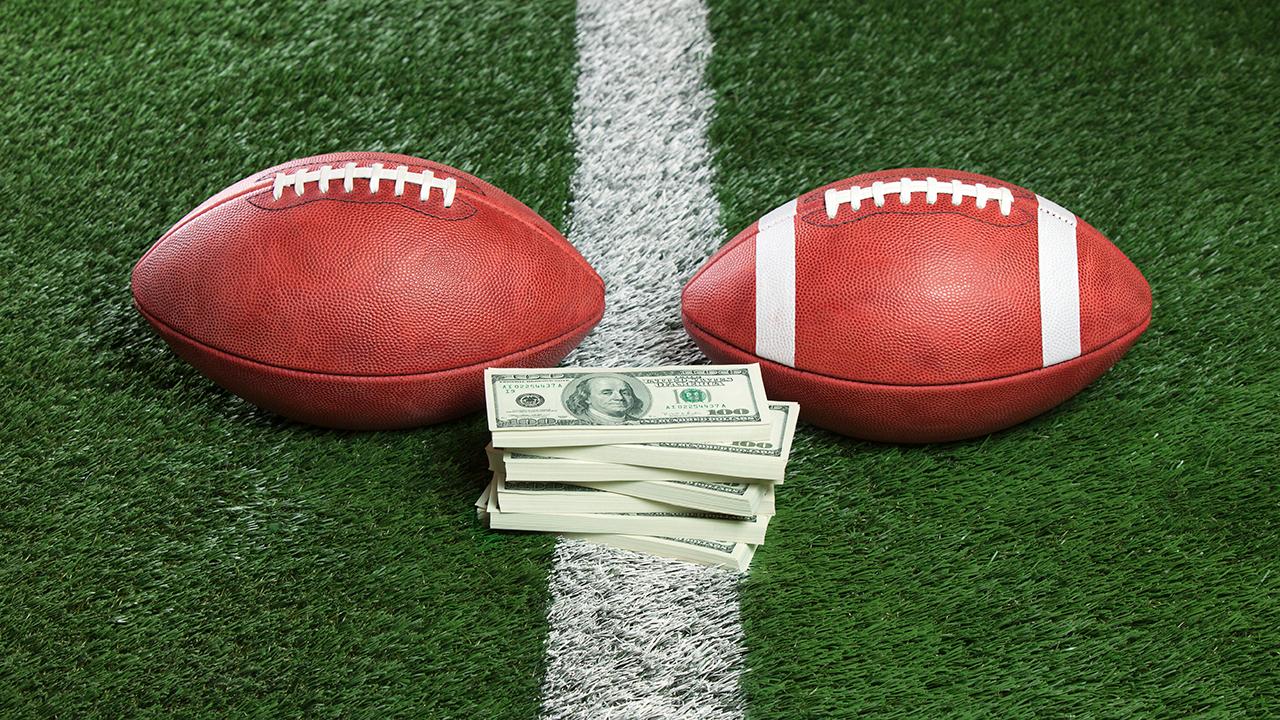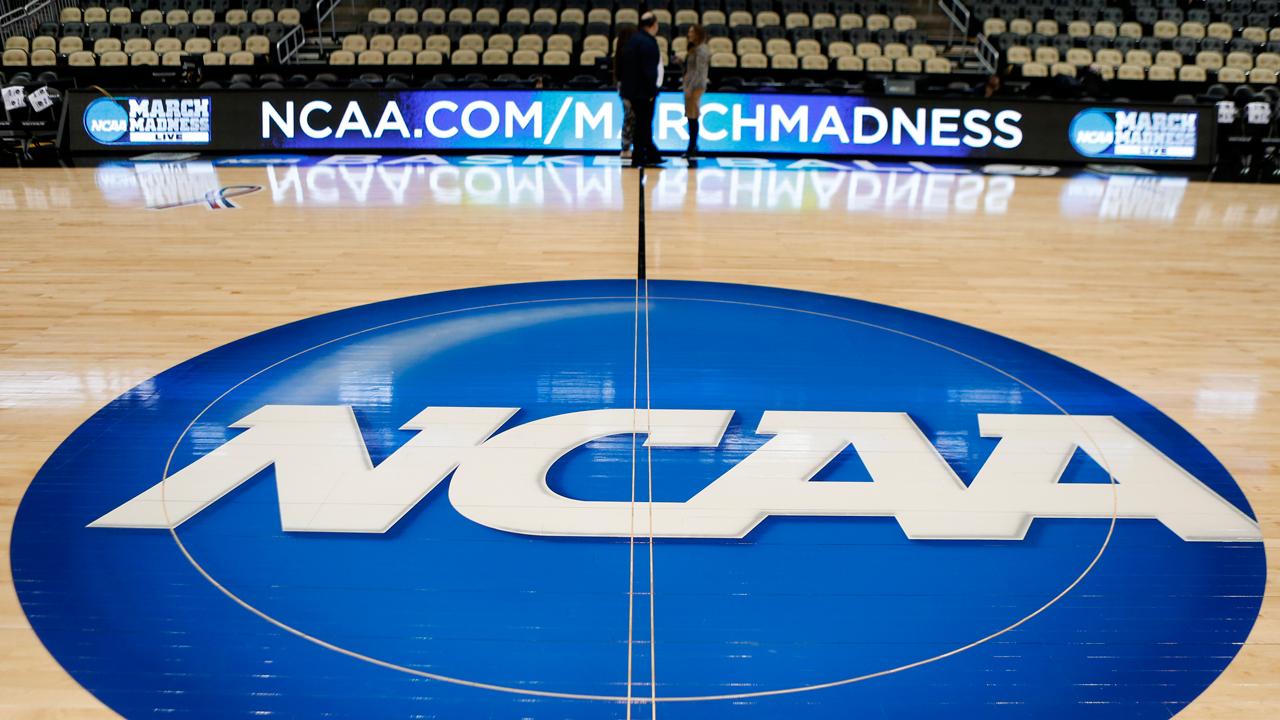NCAA football bowls: Why schools don't care about the bonus check
Revenue-sharing, national exposure outweigh bowl game expenses
Mid-level college football teams see quirkily named postseason bowl games like the Makers Wanted Bahamas Bowl and the Tropical Smoothie Frisco Bowl as a chance to score major benefits – even if the trip means a short-term financial loss.
While the NCAA’s flagship College Football Playoff series and top-tier bowl games like the Pinstripe Bowl boast multimillion-dollar payouts to their participants, many of the 41 postseason bowl games offer far less. Bowl game season kicks off on Friday with a Makers Wanted Bahamas Bowl that carries a payout of just $225,000, virtually assuring that opponents UNC-Charlotte and Buffalo will lose money on the trip.
The College Football Playoff’s revenue distribution system ensures that each conference – and member schools – receive a share of the hundreds of millions of dollars that bowl season generates each year. For teams willing to eat an initial budget deficit, like the UNC-Charlotte 49ers and the University at Buffalo Bulls, bowl games also provide national exposure.
“Even though these less visible bowl games are indeed just that, they’re still, in many cases, the top-rated programming that night. I think that says something," Patrick Rishe, director of the sports business program at Washington University in St. Louis, told FOX Business. "If you’re playing in a lesser quality bowl game, you’re still generating significant visibility and exposure to the university that you just can’t buy.”
Teams that earn bowl game berths aren’t in line for a check as soon as the game ends. Bowl game payouts are dispersed to the conference rather than the school itself. From there, the conference divides bowl game revenue – including money distributed by the College Football Playoff – according to its own membership guidelines.
Conferences earned a total profit of $448 million from bowl games during the 2017-18 college football postseason, according to NCAA documents obtained by USA Today, with most revenue stemming from the College Football Playoff and major bowl games such as the Cotton Bowl. Without the subsidies, Conference USA – which counts UNC Charlotte as a member – would have had a $2 million bill for expenses such as travel and mandatory ticket purchases.
The Football Bowl Association, which advocates on behalf of the bowl system, said a "conservative estimate" holds that bowl games will have paid out more than $1 billion to conferences and their institutions from 2018 to 2020.
Officials in charge of several postseason bowl games declined to comment on the financial details for payouts and how the amount is determined. ESPN Events, which owns and operates 13 bowl games, also declined to comment.
“In addition to sponsorship and ticket sales revenue, postseason bowls like ours have a media rights deal that exists outside of the regular-season media rights schedule,” said Matt Repchak, the Citrus Bowl’s senior director of marketing and communications. “Those are the three primary revenue sources for our business model.”
The system is undeniably lucrative for major conferences and bowl game operators, and the College Football Playoff’s revenue distribution model is designed to fill in the gaps. Each conference receives $300,000 for each of its schools that meets the criteria for bowl game selection, among other payouts. Financial distributions to individual schools are at the discretion of those conferences.
The benefits are also clear for other key participants, such as media networks and title sponsors. For ESPN, a slate of bowl games provides a source of live content capable of drawing live audiences that few other forms of programming can secure in the cord-cutting era.
The same is true for sponsors and the naming rights deals that have given rise to oft-mocked game titles like the Tony the Tiger Sun Bowl or the TaxSlayer Gator Bowl. The Bahamas Bowl is no exception – the government of Elk Grove Village, Illinois, paid $300,000 to add its marketing slogan, “Makers Wanted,” to the game’s title.
While conferences help member schools cover the cost of travel and other expenses, making arrangements for a bowl trip with just a few weeks of notice can be a challenge for smaller programs. In the case of the Bahamas Bowl, UNC-Charlotte and Buffalo had to ensure that all players and staff members had active passports, among other considerations.
GET FOX BUSINESS ON THE GO BY CLICKING HERE
The game’s $225,000 payout isn’t enough to cover the costs, according to UNC Charlotte athletic director Mike Hill.
“These are not break-even propositions for the participants. We’re going to lose some money.” Hill told the Charlotte Observer.
Buffalo athletic director Mark Alnutt said the Mid-American Conference (MAC) distributed $350,000 to the school for its bowl berth and provides a 240-passenger charter jet for the team's trip to the Bahamas. Officials for the Bahamas Bowl provide 120 complimentary rooms to each team.
"It is our goal every year to balance our Bowl budget," Alnutt told FOX Business. "At this point, it is difficult to see where we will end up until we have reconciled all expenses associated with this Bowl."
Yet for universities that are in constant competition for top recruits and student admissions, exposure to a national television audience on ESPN or another major network can be worth the expense. A bowl appearance for a school without an established football pedigree, such as UNC-Charlotte, can mean access to a wider pool of promising students.
“Let’s just say, worst-case scenario for the school, you had to pay for all of your travel expenses. … is it worth over $1 million in added visibility and exposure to the university’s brand? I wouldn’t doubt if it was – and especially in today’s era of social media,” Rishe said.
Payouts for the 2019-2020 college football bowls
- Bahamas - Nassau, Bahamas: $225,000
- Frisco - Frisco, TX: $650,000
- New Mexico - Albuquerque: $1,050,000
- Cure Bowl - Orlando, FL: $573,125
- Boca Raton - Boca Raton, FL: $900,000
- Camellia - Montgomery, AL: $300,000
- Las Vegas - Las Vegas, NV: $2,900,000
- New Orleans - New Orleans, LA: $825,000
- Gasparilla - Tampa, FL: $1,125,000
- Hawai'i - Honolulu, HI: $1,200,000
- Independence - Shreveport, LA: $2,200,000
- Quick Lane Bowl - Detroit, MI: $2,000,000
- Military - Annapolis, MD: $2,066,990
- Pinstripe - Bronx, NY: $4,400,000
- Texas - Houston, TX: $6,400,000
- Holiday - San Diego, CA: $6,532,700
- Cheez-It - Phoenix, AZ: $1,625,560
- Camping World - Orlando, FL: $6,071,760
- Cotton - Arlington, TX: Playoff Revenue Pool
- Peach - Playoff Semifinal - Atlanta, GA: Playoff Revenue Pool
- Fiesta - Playoff Semifinal - Glendale, AZ: Playoff Revenue Pool
- Orange - Miami, FL: Playoff Revenue Pool
- SERVPRO First Responder Bowl - Dallas, TX: $824,545
- Redbox - Santa Clara, CA: $3,600,000
- Music City - Nashville, TN: $5,700,000
- Belk - Charlotte, NC: $4,780,461
- Sun - El Paso, TX: $4,550,000
- Liberty - Memphis, TN: $4,700,000
- Arizona - Tucson, AZ: $350,000
- Alamo - San Antonio, TX: $8,252,740
- Outback - Tampa, FL: $6,400,000
- Citrus - Orlando, FL: $8,224,578
- Rose - Pasadena, CA: Playoff Revenue Pool
- Sugar - New Orleans, LA: Playoff Revenue Pool
- TicketSmarter Birmingham - Birmingham, AL: $1,374,545
- Gator Bowl - Jacksonville, FL: $5,350,000
- Famous Idaho Potato - Boise, ID: $800,000
- Armed Forces - Ft. Worth, TX: $1,350,000
- Lending Tree - Mobile, AL: $1,500,000
- CFP Championship - New Orleans, LA: Playoff Revenue Pool
CLICK HERE FOR MORE SPORTS COVERAGE ON FOXBUSINESS.COM
This story has been updated.





















